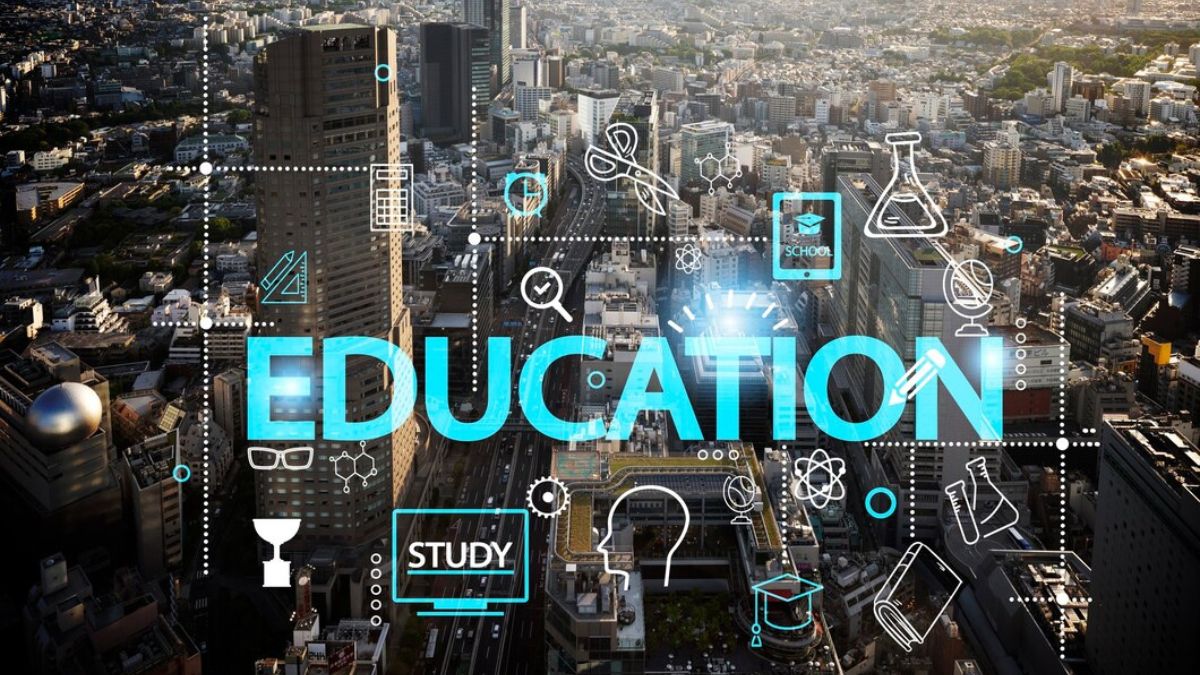EDUCATION
Frontline Education and the Future of Learning

In today’s rapidly evolving educational landscape, frontline education stands out as a critical component in shaping future generations. Designed to equip teachers, administrators, and support staff with the right tools and resources, frontline education is all about enhancing the quality of learning experiences for students. This blog post will explore the various facets of frontline education, its importance, and practical ways to implement it effectively. By the end, you’ll gain insights into how this approach can revolutionize education systems and empower educators to drive meaningful change.
What is Frontline Education?
Frontline education is a comprehensive approach that focuses on supporting educators and school staff by providing them with essential tools, resources, and training. It aims to streamline administrative tasks, optimize teaching strategies, and ultimately improve student outcomes. This approach emphasizes collaboration and communication among educators, ensuring that they have the support needed to excel in their roles.
By focusing on the needs of educators, frontline education seeks to create an environment where teachers can focus more on delivering high-quality instruction and less on administrative burdens. This approach often involves the integration of technology and data-driven decision-making to enhance learning experiences for students.
The emphasis in frontline education is on empowering educators to make informed decisions that positively impact their students. By providing the right tools and resources, educators can tailor their teaching methods to meet the diverse needs of their students, fostering an inclusive and effective learning environment.
The Role of Technology in Frontline Education
Technology plays a pivotal role in frontline education, offering educators innovative solutions to streamline various aspects of their work. From managing administrative tasks to delivering engaging lessons, technology can significantly enhance the efficiency and effectiveness of educational practices.
One of the most notable benefits of technology in frontline education is the ability to automate routine tasks, freeing up valuable time for educators to focus on instruction. For example, technology can help manage attendance, grade assignments, and track student progress, allowing teachers to dedicate more time to personalized teaching.
Additionally, technology enables educators to access a wealth of resources and tools that can enhance their teaching strategies. Online platforms, educational apps, and digital content provide opportunities for educators to engage students in creative and interactive ways, making learning more enjoyable and effective.
Enhancing Collaboration Among Educators
Collaboration is a key aspect of frontline education, fostering an environment where educators can share ideas, resources, and best practices. By working together, educators can develop innovative solutions to common challenges and improve the overall quality of education.
Frontline education encourages collaboration by facilitating communication through various channels, such as professional learning communities, online forums, and collaborative planning sessions. These opportunities allow educators to exchange insights and experiences, ultimately enhancing their teaching practices.
Furthermore, collaboration among educators can lead to the development of a more cohesive and supportive school culture. When teachers work together towards common goals, they create a sense of unity and purpose, which can positively impact both educators and students alike.
Data-Driven Decision Making in Education
Incorporating data-driven decision-making into frontline education allows educators to make informed choices that benefit their students. By analyzing data on student performance, attendance, and behavior, educators can identify trends and areas for improvement, enabling them to tailor their teaching strategies accordingly.
Data-driven decision-making empowers educators to develop targeted interventions and support strategies for students who may be struggling. By understanding each student’s unique needs, teachers can provide personalized instruction that maximizes learning opportunities.
Additionally, data can help educators evaluate the effectiveness of their teaching methods and programs. By assessing student outcomes, educators can identify successful strategies and refine their approaches, leading to continuous improvement in the quality of education.
Building Stronger School-Community Relationships
Frontline education recognizes the importance of fostering strong relationships between schools and their communities. By engaging parents, caregivers, and community members in the educational process, schools can create a supportive network that enhances student success.
Schools can build stronger connections with their communities by hosting events, workshops, and meetings that encourage active participation and collaboration. These initiatives provide opportunities for community members to contribute their knowledge and resources, ultimately enriching the educational experience for students.
Effective communication is also essential in building strong school-community relationships. By keeping parents and caregivers informed about school activities, policies, and student progress, schools can foster trust and collaboration, ensuring that everyone is working together towards common goals.
Addressing Diverse Student Needs
Frontline education emphasizes the importance of addressing the diverse needs of students, ensuring that every child has access to a high-quality education. By recognizing and responding to individual differences, educators can create inclusive learning environments that celebrate diversity and promote equity.
To meet the diverse needs of students, educators must employ a variety of teaching strategies and resources tailored to different learning styles, abilities, and backgrounds. This may involve differentiated instruction, culturally responsive teaching, and the use of assistive technologies to support students with disabilities.
Additionally, frontline education encourages ongoing professional development for educators, equipping them with the skills and knowledge needed to effectively address diverse student needs. By staying informed about the latest research and best practices, educators can continuously improve their teaching methods and create more inclusive classrooms.
Supporting Educator Professional Development
Professional development is a crucial component of frontline education, empowering educators to grow and refine their skills throughout their careers. By providing opportunities for ongoing learning and growth, schools can ensure that teachers remain well-equipped to meet the evolving needs of their students.
Frontline education supports professional development through various means, such as workshops, conferences, online courses, and mentorship programs. These opportunities allow educators to expand their knowledge, explore new teaching strategies, and collaborate with colleagues from diverse backgrounds.
Investing in professional development not only benefits educators but also enhances the overall quality of education. When teachers are equipped with the latest research and best practices, they can deliver more effective instruction and foster positive learning outcomes for their students.
Creating Supportive Learning Environments
A supportive learning environment is essential for student success, fostering a sense of belonging and motivation among learners. Frontline education emphasizes the importance of creating environments that nurture student well-being and promote positive interactions among peers and educators.
Supportive learning environments are characterized by clear expectations, consistent routines, and a focus on social-emotional learning. By promoting open communication and mutual respect, educators can create safe spaces where students feel comfortable taking risks and engaging in meaningful learning experiences.
Additionally, frontline education recognizes the role of physical spaces in shaping the learning environment. By ensuring that classrooms are well-equipped, organized, and conducive to learning, schools can create environments that inspire creativity and curiosity among students.
Encouraging Student Engagement and Motivation
Frontline education aims to foster student engagement and motivation, ensuring that learners are actively involved in their educational journeys. By creating engaging and relevant learning experiences, educators can inspire students to take ownership of their learning and develop a lifelong love for education.
To encourage student engagement, educators must employ a variety of instructional strategies that cater to different interests and learning styles. Incorporating hands-on activities, real-world applications, and collaborative projects can make learning more meaningful and enjoyable for students.
Additionally, setting clear goals and providing regular feedback can help students stay motivated and focused on their learning objectives. By recognizing and celebrating student achievements, educators can reinforce positive behaviors and foster a growth mindset among learners.
Integrating Social-Emotional Learning into the Curriculum
Social-emotional learning (SEL) is a vital aspect of frontline education, promoting the development of essential life skills such as self-awareness, empathy, and responsible decision-making. By integrating SEL into the curriculum, educators can support the holistic development of their students and prepare them for future success.
SEL can be incorporated into various aspects of the curriculum, such as classroom discussions, group activities, and reflective exercises. By weaving SEL principles throughout the educational experience, educators can create a supportive environment that nurtures student well-being and fosters positive relationships.
In addition to benefiting students, SEL can also enhance the overall school climate by promoting a culture of respect, collaboration, and inclusion. By prioritizing social-emotional learning, schools can create environments where all students feel valued and supported.
The Impact of Frontline Education on Student Outcomes
The implementation of frontline education has the potential to significantly impact student outcomes by improving the quality of instruction and fostering positive learning environments. By equipping educators with the necessary tools, resources, and support, frontline education can drive meaningful change in schools and communities.
Research has shown that schools that prioritize frontline education often experience improvements in student achievement, engagement, and well-being. By addressing the diverse needs of learners and promoting a culture of collaboration and innovation, frontline education can create lasting positive change in education systems.
Conclusion
Frontline education is a powerful approach that has the potential to transform the educational landscape and enhance student outcomes. By focusing on supporting educators and creating inclusive learning environments, this approach empowers schools to deliver high-quality education that meets the diverse needs of their students.
By investing in frontline education, schools can create a culture of continuous improvement and innovation, ensuring that all students have access to the resources and opportunities they need to succeed. For educators, administrators, and policymakers seeking to drive meaningful change in education, frontline education offers a valuable framework for achieving lasting impact.

-

 TOPIC6 months ago
TOPIC6 months agoDiscovering Joe’s Carts: A Adventure on Wheels
-

 TECHNOLOGY5 months ago
TECHNOLOGY5 months agoNavigate Mojini V3 Login Like a Pro
-

 BLOG8 months ago
BLOG8 months agoMyWape: A Deep Dive into the Emerging Video-Sharing Platform
-

 BLOG9 months ago
BLOG9 months agollm 申請 statement of purpose
-

 BLOG7 months ago
BLOG7 months agoWhy Aoleonuithietke.com Is the Go-To Resource for Creative Inspiration
-

 ENTERTAINMENT5 months ago
ENTERTAINMENT5 months agoBehind the Screen Magic of Web Series Uncut
-

 TECHNOLOGY6 months ago
TECHNOLOGY6 months agoTransforming Manufacturing with Precision Winding Machines
-

 BLOG9 months ago
BLOG9 months agoModernized mona lisa: The Ultimate Guide